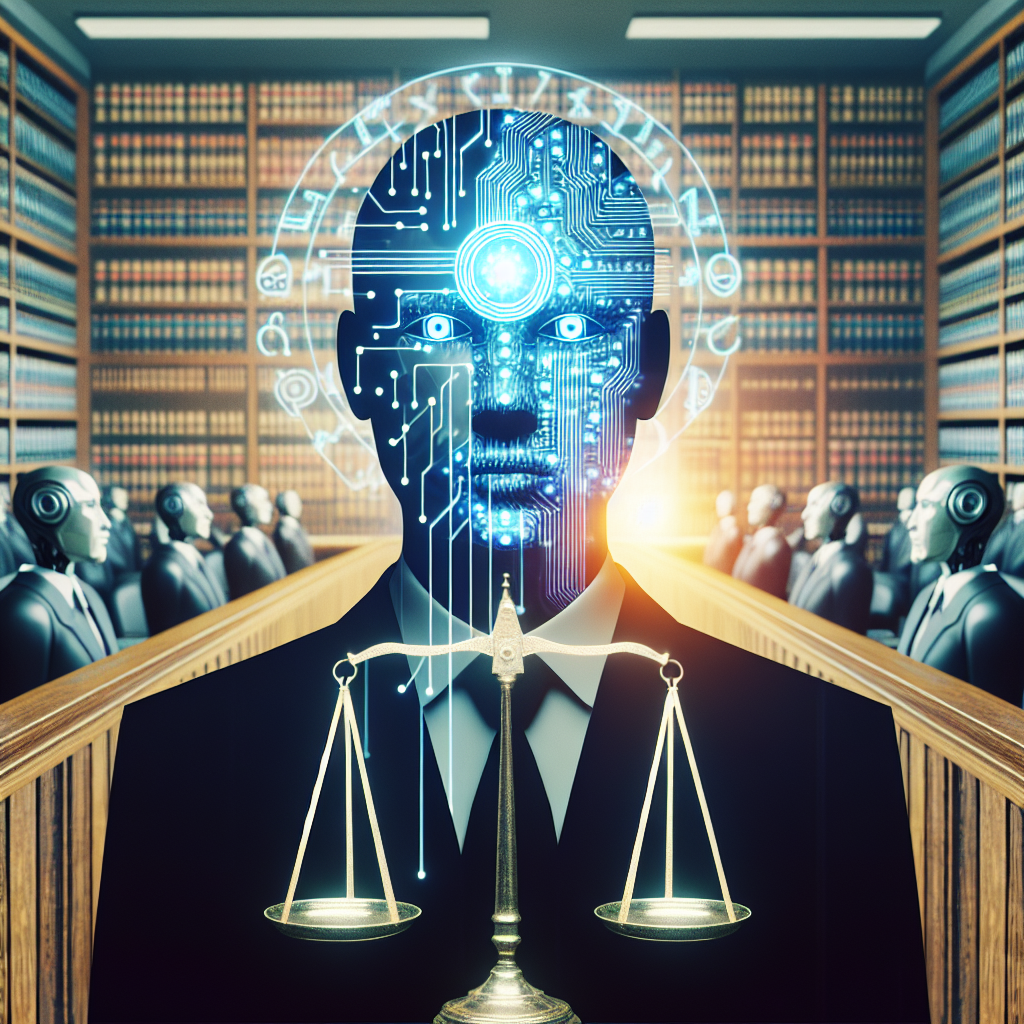Implementing AI in Legal Practice: Challenges and Opportunities
Artificial intelligence (AI) has become a powerful tool in various industries, transforming the way businesses operate and making processes more efficient. The legal industry is no exception, with AI offering new opportunities to streamline processes, increase efficiency, and improve outcomes for clients. However, implementing AI in legal practice also presents its own unique set of challenges. In this article, we will explore the challenges and opportunities of implementing AI in legal practice and discuss how law firms can navigate this rapidly evolving landscape.
Challenges of Implementing AI in Legal Practice
1. Data Privacy and Security Concerns
One of the biggest challenges of implementing AI in legal practice is ensuring the privacy and security of sensitive client data. AI systems require large amounts of data to function effectively, and law firms must take steps to protect this data from cyber threats and unauthorized access. Firms must also comply with strict data privacy regulations, such as the General Data Protection Regulation (GDPR) in Europe and the California Consumer Privacy Act (CCPA) in the United States.
2. Ethical and Regulatory Compliance
AI systems in legal practice must adhere to ethical standards and regulatory guidelines to ensure fair and unbiased outcomes. There is a risk of algorithmic bias in AI systems, which can lead to discriminatory practices and unfair treatment of clients. Law firms must carefully monitor and audit their AI systems to ensure compliance with ethical and regulatory standards.
3. Resistance to Change
Many legal professionals may be hesitant to adopt AI technology due to fear of job displacement or concerns about the accuracy and reliability of AI systems. Law firms must provide training and support to help their employees adapt to new technologies and understand the benefits of AI in legal practice.
4. Cost and Resources
Implementing AI in legal practice can be costly and resource-intensive, requiring significant investment in technology infrastructure, training, and implementation. Law firms must carefully assess their budget and resources to determine the feasibility of integrating AI into their practice.
5. Lack of Technical Expertise
AI technology is complex and requires specialized technical expertise to develop and maintain. Law firms may struggle to find qualified professionals with the necessary skills to implement and manage AI systems effectively.
Opportunities of Implementing AI in Legal Practice
1. Increased Efficiency
AI technology can automate routine tasks, such as legal research, contract review, and document analysis, allowing legal professionals to focus on higher-value work. By streamlining processes and reducing manual labor, AI can increase efficiency and productivity in legal practice.
2. Improved Decision-Making
AI systems can analyze large amounts of data and identify patterns and trends that human lawyers may overlook. By providing valuable insights and predictive analytics, AI can help legal professionals make more informed decisions and achieve better outcomes for their clients.
3. Enhanced Client Service
AI technology can improve the client experience by providing faster response times, more accurate advice, and personalized recommendations. By leveraging AI tools, law firms can deliver better service to their clients and build stronger relationships.
4. Competitive Advantage
Law firms that embrace AI technology can gain a competitive advantage in the legal market by offering innovative solutions, faster turnaround times, and more cost-effective services. By staying ahead of the curve, firms can attract new clients and retain existing ones.
5. New Revenue Streams
AI technology opens up new opportunities for law firms to diversify their services and explore new revenue streams. For example, firms can offer AI-powered legal research tools, contract analysis services, or predictive modeling solutions to clients in addition to traditional legal services.
FAQs
Q: What are some common applications of AI in legal practice?
A: Common applications of AI in legal practice include legal research, contract analysis, document review, predictive analytics, and case prediction.
Q: How can law firms ensure the ethical use of AI in legal practice?
A: Law firms can ensure the ethical use of AI in legal practice by implementing transparency and accountability measures, monitoring and auditing AI systems for bias, and providing training on ethical guidelines and regulatory compliance.
Q: How can law firms overcome resistance to change when implementing AI technology?
A: Law firms can overcome resistance to change by providing training and support to help employees adapt to new technologies, communicating the benefits of AI technology to staff, and involving employees in the implementation process.
Q: What are some best practices for data privacy and security when implementing AI in legal practice?
A: Best practices for data privacy and security when implementing AI in legal practice include encrypting sensitive data, implementing access controls and monitoring tools, conducting regular security audits, and complying with data privacy regulations.
Q: What are the potential cost savings of implementing AI in legal practice?
A: Implementing AI in legal practice can lead to cost savings by reducing manual labor, streamlining processes, and increasing efficiency. Law firms can save time and resources by automating routine tasks and focusing on higher-value work.
In conclusion, implementing AI in legal practice offers a range of challenges and opportunities for law firms. By addressing data privacy and security concerns, ensuring ethical and regulatory compliance, overcoming resistance to change, and investing in technical expertise, law firms can harness the power of AI to improve efficiency, decision-making, client service, and competitive advantage. With careful planning and strategic implementation, law firms can position themselves for success in the rapidly evolving landscape of AI technology in the legal industry.

